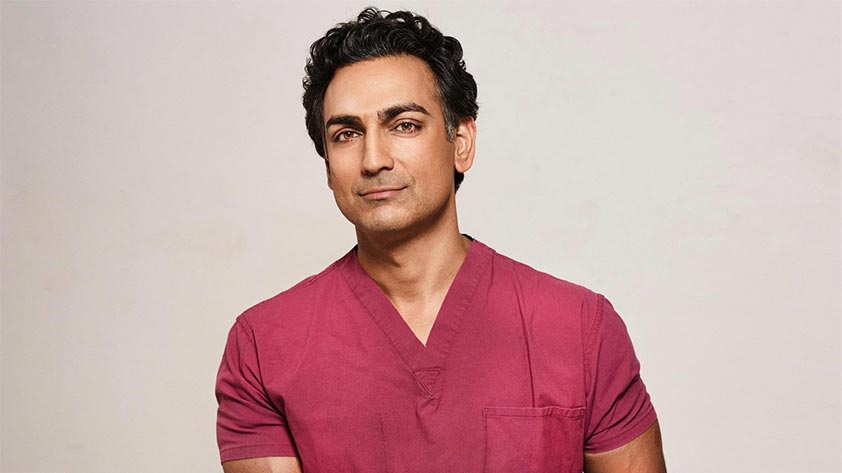
Brain surgeon and neuroscientist, Dr Rahul Jandial explains how people can heal their painful memories. He suggests emotional healing can be attained through balance in your life, regulating emotions and experiencing healthy lifestyle options. This best-selling author has provided complex surgical treatment to cancer patients and writes about many brain conditions, which he has drawn from his medical work. Want the lowdown? Then continue on for Dr Rahul Jandial: How to Heal Your Mind and Negative Thoughts!
Emotional Context Needs to Change for Our Memories
Dr Rahul Jandial recognizes that the emotional context attached to painful memories needs to change. Yet, Lewis Howes, in his interview with Dr Rahul Jandial, admits that people tend to want to numb painful memories with addictions or habits.
Dr Rahul Jandial says that working through painful memories with a therapist resolves emotional trauma and helps people process these memories. While Dr Jandial has worked with various cancer patients, he says that many of his patients have adopted a different way of thinking since their recovery. Dr Jandial noted that many of these individuals preferred their newer lifestyle choices rather than their previous ways of living.
I understand how a cancer patient may value their ‘after diagnosis’ life differently. At 16, I was nearly a straight ‘A’ student, but my life fell quickly apart due to psychosis at 19. My thoughts were troubled and disconnected after my psychotic episode, and it took many years to try to ‘piece’ my previous lifestyle together again.
I eventually realized I would never rebirth my 16 year-old mentality again. But I thought I should embrace the newer wisdom I had in my forties and the further ability to look after my health.
Create a Balance in Your Life
Dr Jandial explains that if people have previously experienced trauma, they can adjust to upcoming traumatic situations better. During the interview with Lewis Howes, Dr Jandial admits that emotional regulation is a potent skill. Trauma only acts as a painful memory while the memories exist.
While memories are a representation of an event, those memories can change to a different perspective over time. Memories can be adapted, and the thoughts attached to the memories may shift. As people work with therapists, it allows the clients to process their memories and enables them to heal their traumas.
We Need to Regulate Our Emotions Often
Dr Jandial suggests that if we cannot cultivate emotional regulation, people start having an emotional brain not controlled by the thinking brain. He says emotional regulation is the life skill to deal with upcoming traumas. As people learn to control emotions tied to traumas, it helps them to manage those feelings. When individuals prioritize their emotions appropriately, they can access a newer version of their feelings daily.
The brain is very flexible, as Dr Jandial explains, and the next day can be better if a person is in a ‘tough place’ mentally. Dr Jandial says that rather than experiencing a meditative state, pacing the breath has some great outcomes for emotional regulation. On brain scans, meditative breathing showed anxiety levels going down, and the brain’s electricity dropped from fast to medium.
Dr Jandial agrees that emotional regulation can help the brain produce healthier body activity and promotes healthy living cells. A lack of emotional regulation could harm brain activity or put the brain in a ‘hyped’ state, leading to exhaustion or higher stress levels.
Although people’s thoughts appear as ‘electrical responses’, the body’s chemical flow in the brain can create a harmonious environment if treated well. This chemical flow often relies on the body’s movement or exercise but can be affected by diet and emotional regulation.
During the times I’d experimented with breathwork and experienced meditation, I noticed my mind’s ability to adjust to more responsibilities in life. But these experiences were often followed up with counselling sessions. My mind feels like it resides in a ‘safer’ place now. My views on life have changed due to the ability to tap into a ‘safe place’ in my mind. This shows I have learned my own ’emotional regulation’ system.
While studies on neuroscience are ongoing, Dr Jandial’s insights have benefited many people with his well-researched books. Healing the emotional context of memories may be beneficial in numerous ways.
Yet how do you think the ‘narratives’ we tell ourselves may affect our health? Have you altered your perspective on life and noticed how your emotional health correspondingly changed? Let us know in the comments below and join in the conversation on Facebook, Twitter & Instagram! Want more from top experts? Then check out more of our psychology-oriented, motivational articles too!









